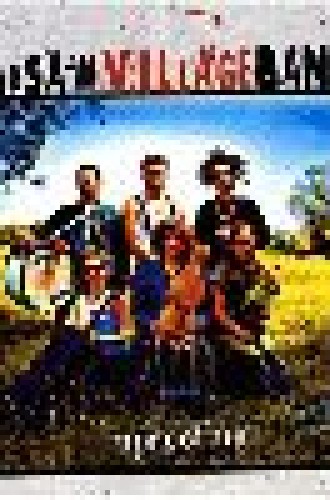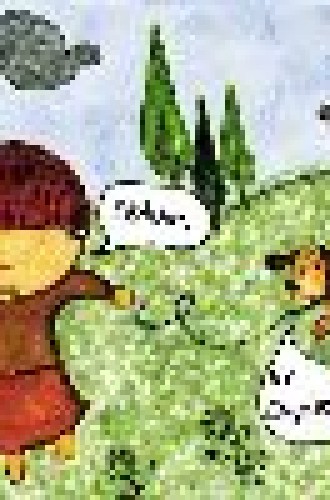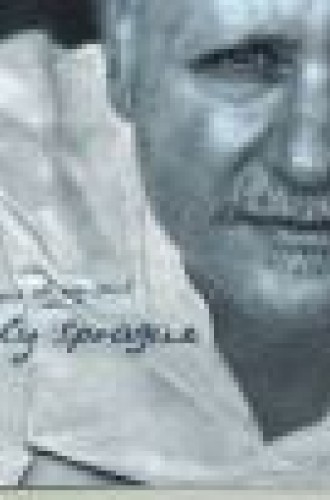Sound alternatives
Could Mali become the next Cuba? The folks at Putumayo—known for their attractive world-music compilations—think so, and make a compelling case. From Habib Koite’s forlorn, percussive “Kanawa” to Issa Bagayogo’s “Bana” (with a swing that recalls the Bee Gees in their Saturday Night Fever prime), this collection is rich in variety, depth and musicality. The only disappointment: no cut from Tinariwen, the stunning ensemble of Tuareg refugees that performed at the Cornwall, England, Live 8 concert.
Himmelman’s Jewish faith has always informed his music, giving it delightful spunk and tart theological crispness. “Kneel Down” is a rustic rocker, splashed with flamenco electric guitar and a thoughtful refrain: “Kneel down, for the party’s just beginning / We don’t run in the house of God, we only crawl.” The title cut is a stealthy song grounded by growling guitars, and the closing track, “Another Day,” is a ballad in which persistence wrestles with futility (“Sometimes if you’re lucky God will give you another day”).
The title is apt, for Chenoweth—a Tony Award winner and regular on The West Wing—sings songs of faith in a style that is hardly hip. She makes no apologies for her theatrical leanings (as heard on a heavily orchestrated “Joyful, Joyful”), and there is an earnest quality to her music that makes up for the gloss. When, on “Taylor the Latte Boy,” she sing-speaks about yearning to meet her soulmate behind the counter of a coffee shop, it’s enough to make you apply for a job at Starbucks.
Mitchell’s sound owes much to modern gospel pioneers such as Kirk Franklin and Fred Hammond, with its boisterous choirs, grinding R&B beats and supple rhythm sections—all girded by irrepressibly positive lyrics. On “No Way,” an Otis Redding energy permeates as Mitchell sings, “You’ve already got the victory / No weapon shall prosper.” While not as bombastic as Franklin or as stately as Hammond, Mitchell is a young talent with promise.
At turns giddy and reflective, Migration folds shimmering psychedelic textures beneath Jonathan Donahue’s tremulous tenor. A standout track is “In a Funny Way,” a deft combination of Phil Spector beat and Esquivel Martian-music vibe. Elsewhere, “My Love” is a tale of regret and redemption (“I’ve struggled with an old angel all night long”), while “Down Poured the Heavens” is a heartfelt, piano-based love song in which Donahue sings: “When into my darkness I praise the god sublime / Who let this fallen angel into this world of mine.”
Imagine the earthiest folk music sounds—churning violins, dulcimers, thumping frame drums and strident female vocals—grafted with turntable scratching, computer-generated loops and synthesizer blasts, and you begin to capture the bewildering, beguiling mix this youthful sextet produces. Tracks run the gamut from “Let’s Play, Musicians!” (recalling the luminescent folk of the Mamas & Papas) to “In the Forest,” a sonic journey that encapsulates the eclectic, daring spirit of this album.
In the 1960s, Davie Allan was a leading L.A. session guitarist who scored minor recognition playing surf pop. But on this 1967 disc—re- released by Sundazed—Allan shows the daring originality that led him to mix influences and embrace new technology. He shows off his then-new guitar fuzz box on the title track (a Top 40 hit) and on “King Fuzz” (with its otherworldly slide guitar). “Theme from the Unknown” mixes spacey organ and Wild West riffing. This album is fabulously dated.
While this album (a follow-up to 2002’s gold-selling Legacy: Hymns & Faith) mostly plays it safe, the breezy country pop, gospel and blues–tinged tracks are rendered with professionalism that avoids slickness. On “Rock of Ages,” Grant and husband Vince Gill join for a tender southern gospel duet, backed by the Fairfield Four. “O Love That Will Not Let Me Go” gets a jolt from some soulful saxes, and “Anywhere with Jesus” recalls Bonnie Raitt with its down-home fingerpicking and smart electric guitar phrases.
Smooth jazz is often rife with musical clichés and shallowness, but saxophonist David Sanborn—with a résumé that includes stints with Stevie Wonder and David Bowie (Young Americans)—is a player with a difference. The textures and timbres have a sweet, enveloping quality, as heard on “Tin Tin Deo,” anchored by polyrhythmic cowbell, timbale and Latin-tinged riffs. “Ballad of the Sad Young Men” is rendered as if heard through a winter’s mist, while “Capetown Fringe” moves along with a Sting-like bounce.
It’s fashionable these days for musicians for kids to write zany songs. Even by those standards, this Canadian collective (a mixture of adult alt-rockers and child musicians) has yielded something unusual. With its drummer-in-a-tremor rhythm, “Yr Mama” sounds like a three-way collision between the Monkees, Violent Femmes and Ramones (listen for the Ramones lyric quote). And “Bethlehem,” with its vaudeville-show-tune backdrop, offers this farcical couplet: “Everybody sleeps in linen / and the cherubs won’t let the sin in.”
Pedro the Lion’s David Bazan may have an evangelical background and explicit Christian faith, but musically and lyrically he continues to shock. Whether savaging gossip and deceptive speech (“Shit Talker”) or the shallowness of end-times doctrine (“Natural Disaster”), Bazan augments his frayed voice with the rawest of soundscapes (synthesizers, electric pianos, bass and drums) and the tersest of verses. On the aforementioned “Disaster,” he invokes the World Trade Center tragedy: “Maybe a couple of airplanes could crash into buildings and put the fear of God in you.”
With a lovely tenor that brings to mind Paul McCartney or Phil Keaggy, Sprague mixes rock with acoustic guitar and spirited instrumentation; his verses also pass muster as mature meditations on life and belief (as on “Welcome to the Lovely Ride,” a celebration of a child’s birth). “If I Told You” grabs the listener with its phase-tone electric guitar, Spanish chanting and horn work, and “No Good Reason” is a Beatlesque throwback with its slide guitar à la George Harrison and creamy background harmonies.
















